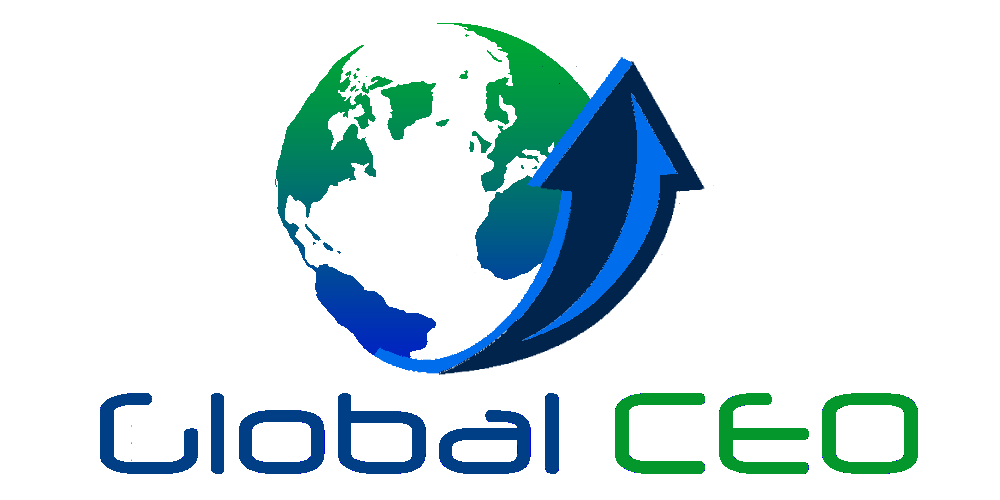The Drum | 4A’s CEO Marla Kaplowitz On Top 2023 Trends: Talent, AI, Privacy And Sustainability

[ad_1]
Marla Kaplowitz, chief executive officer at industry body the 4A’s, opines on marketers’ top priorities for 2023 – from sustainability and consumer data privacy to agency operations and the ongoing war for talent.
As part of The Drum’s week of special coverage on 2023 predictions, we quizzed 4A’s leader Marla Kaplowitz on the hot-button issues that will shape the advertising and marketing world this year. Here’s what she had to say.
What are the biggest trends you anticipate seeing in the marketing and advertising industry in 2023?
To me, what’s most interesting is where we’re at … with the economy. There was semi-good news [recently] that inflation is abating, so that’s positive for everyone. People are holding back, being very conservative, trying to understand what the year is going to look like.
We also recognize that automation continues to be a big theme … and work around that is so important because it allows agencies not only to continue to optimize and strengthen, but to recognize how they can better leverage the talent that they have in house already. If you think about everything that is happening right now, this is a good time to be making sure that your business is in good shape and prepared for the future. I was at CES this month and automation is clearly at the top [of peoples’ priorities] and technology and the way that it will be used.
Another area that will continue to be a big focus … is data privacy. We’re continuing to work at the federal level as part of our coalition with Privacy for America. We don’t know what will happen – if this Congress will continue to focus on it – but what we do know is that the states are not slowing down. That’s concerning, because we’ve already got [privacy] legislation in five states and we’ve got another five that are considering passing [new laws]. This is going to continue to be a bit of a patchwork, and that makes it really challenging both for agencies and for [brand] marketers to navigate through this.
Sustainability has become a very hot topic, specifically around the FTC looking for comments on the ‘Green Guides’ [for the Use of Environmental Marketing Claims]. Agencies are really reaching out to us on this. And our sustainability taskforce, which is composed of agency members, is very keen on making sure that they address and modernize the approach to what is perceived as ‘greenwashing’ and the way that sustainable messages are put through in marketing. The big opportunity when it comes to sustainability is getting alignment in the industry on how we can collectively address greenhouse gas emissions, what we can do [about] media emissions and how we have common definitions of [these topics] – because if everyone is creating their own approach, that’s going to be really challenging in order to have some sort of consistency.
How is economic uncertainty impacting the war for talent and the future of work?
Everyone wants to make sure that they’re being conservative. People are not – and you probably saw this in the fourth quarter [of 2022] – excessively hiring; they’re being more cautious.
The other shift that can happen when there’s economic uncertainty is that work can shift to more project-based, allowing for more flexibility. But that also doesn’t give assurance to an agency to go hire a whole slew of staff to go work on a given project. So agencies are making sure that they are focusing on organic growth and their current clients. Usually, during these time periods, new business opportunities start to decline – but that doesn’t seem to be happening right now, which is very positive.
Another positive is that retention has been going up. So [agencies are focused on] making sure that talent feels connected and comfortable being part of the agency. And [agencies are trying to ensure] they’re not going to lose talent, because that’s going to be a bigger issue if that were to happen.
There’s much more of an internal focus to shore up and make sure that everything is aligned, so that when the view on the economy gets stronger, agencies are poised to continue to grow.
You mentioned automation as a key focus for improving efficiency in the industry in 2023. AI tools – and generative AI systems like ChatGPT in particular – have been getting a lot of hype lately. Do these kinds of tools threaten marketers’ jobs, or are such fears overblown?
I don’t think it threatens [jobs]. I see these tools as a way to augment the work that you’re doing, and to potentially streamline – I don’t see it replacing jobs, at least in the short term. We’ll see what happens, but right now it’s still early days in terms of capabilities. To replace a copywriter, for example, seems like a bit of a stretch.
When we were looking at automation in a report that we did with Forrester back in 2020, the idea then was more around ‘co-botting’ – like, how do you leverage AI and human together to actually amplify the output? That, to me, is the opportunity. This is to enhance creativity, thinking – and potentially speed – but not to fully replace it.
Maybe that’s a naive belief, but for what we’re seeing today, [AI is] not in a place necessarily where it’s [rendering jobs] replaceable. But then again, last year Heinz ketchup [launched a] campaign that used AI and … ingested images of Heinz ketchup bottles, then created various images. People have been experimenting, but there are still humans that are managing that and overseeing those programs.
Another hot topic you mentioned is data privacy. Which will have the greater impact on the advertising industry: forthcoming legislative changes or infrastructural shifts in the tech space, like Google’s Privacy Sandbox and Apple’s privacy-focused policy updates?
Obviously, Apple’s AppTrackingTransparency had a significant impact last year, especially on Meta’s business. We’ll have to see how that continues to evolve.
Should companies be setting these standards, or should the government? Where does regulation fall? The reality is we need consistency and that’s the challenge right now. If you look at Europe, there’s much more of a focus on consistency through the General Data Protection Regulation. However, that is really an opt-in model and we are an opt-out country. That is the behavior that people here are used to. There’s a need to understand those dynamics.
Clearly, there’s a heightened understanding of privacy [among consumers and advertisers], but I don’t think that there’s enough education around the breadth of data that any individual has. It all gets grouped as one thing – and [sensitive categories of information like] financial and health data is very different from creating a better marketing experience with greater relevance. Most consumer studies show that people want more relevant advertising that pertains to their interests. So the more that you take away [advertisers’] access to data, even as it’s anonymized, it actually impacts the overall experience. There needs to be a deeper dynamic of really educating on that piece.
Do you have any predictions about how the data privacy landscape will evolve in the coming months?
It’s going to be interesting now that the US Federal Trade Commission (FTC) is getting involved in terms of rulemaking on commercial surveillance and data privacy. This has been a fairly active FTC in the last 12 to 18 months.
The American Data Privacy and Protection Act, [the proposed federal privacy framework], has failed. We’re not seeing that that’s going to come back to life. Maybe there will be some new approaches to it and some changes in terms of Senate commerce [priorities]. But I don’t think that’s going to live on. The real concern at the federal level is that it keeps getting broken apart [into smaller pieces] and we need something that’s fairly comprehensive. So if the FTC comes in, that could be one way to drive some change.
So I’d like to say we’re optimistic, but we have a new Congress in place and it seems like the House is going to be very distracted with more political aspects of focus. That is not going to be helpful. The one positive is that this is a bipartisan issue. If we can get some alignment, that would be a way to move it forward. There clearly will be resistance from the states that already have legislation, to make sure that it aligns and is consistent [with their own policies].
At the same time, these large tech platforms are going to continue to figure out what they need to do to protect their walled gardens. That’s essentially what they are. And as far as Google delaying [cookie deprecation] again … people are already working around cookie solutions. By the time it actually happens, very few people are going to be relying on cookies at that point.
Tell us more about the ad industry’s focus on sustainability in 2023. What will that look like?
The FTC … wants to make sure that marketers have a voice as part of the overall rulemaking and what happens with the actual language [for its ‘Green Guides’ for the Use of Environmental Marketing Claims]. So that’s a big focus.
Trying to drive greater consistency and alignment [is another priority. One of our challenges is that everyone is approaching and defining sustainability differently. We need some ubiquity across the environment, especially if we’re … trying to look at media emissions and understand what that looks like.
Not only is it important for every agency to be looking internally at what they need to be doing, but also what they need to do to support their clients. And these [areas of focus] are creating new jobs – we didn’t have chief sustainability officers a year ago and, all of a sudden, you’re starting to see a large focus in this area across organizations.
There’s also greater sensitivity in advertising and marketing when it comes to any perceived ‘greenwashing.’ At CES, sustainability was one of the key messages everywhere you went. It was particularly [evident] among Samsung, LG and a lot of electronics brands, not just from a packaging design or product development perspective, but also in the way products are sourced, like in terms of leveraging ocean plastic and repurposing it. So if that’s the big focus and the messages of these companies and it’s on the mind of consumers, it will continue to find its way into advertising, which is why it is so important in all of marketing.
We have to do more collectively, and not be precious about our own individual solutions. This is really about people coming together, and that’s where the 4A’s sustainability taskforce is helpful. I hope that Ad Net Zero [an initiative to get the ad industry to net zero carbon emissions] can get there and that it really drive strong actions. We’re a member of that initiative.
Any other predictions for the near future?
I would just say more on talent. This is a key asset of any agency and any company, and it’s important to make sure that there’s a real investment back in talent to help nurture and grow it. Especially considering that people are not spending all of their time in an office, it’s important to make sure that there is investment in resources with training and helping people grow. There’s a real appetite for this, particularly from younger people. We continue to launch new programs and ways to help support our members when it comes to talent.
Then, of course, media measurement is another big topic. We just released a study with Coalition for Innovative Media Measurement and the ANA, led by Deloitte, on the multi-currency market and how to be looking at that. It seems a bit like the wild west, with everyone wanting to create their own standards. We need alignment. It will be challenging if the sell-side is creating standards that the buy side needs to adhere to.
For more, sign up for The Drum’s daily US newsletter here.
[ad_2]
Source link






